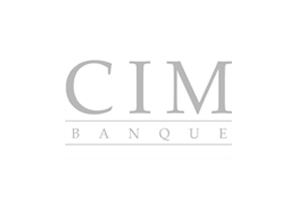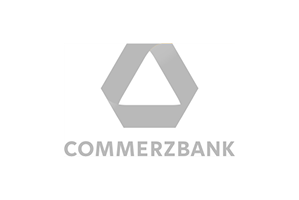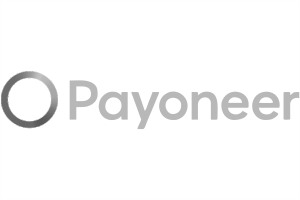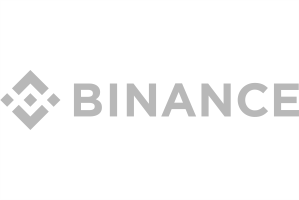Malta has established a comprehensive legal structure to oversee diverse types of virtual financial assets (VFA) and associated services, sometimes termed VFA services. Entities dealing in cryptocurrencies in Malta are subject to three primary legislations:
- Innovative Technology Agreements and Services Act (also known as ITAS Law). This mandates the registration of tech service providers and ensures the authentication of technological agreements.
- The Virtual Financial Assets Act (commonly referred to as VFAA) oversees VFA service entities, initial coin offerings (ICO), and VFA intermediaries.
- The Malta Digital Innovation Act (abbreviated as MDIA Act) supervises the Malta Digital Innovation Authority’s (MDIA) operations.
The VFAA explicitly states that entities cannot deliver VFA services within or outside Malta without obtaining a Malta crypto license from the Malta Financial Services Authority.
What Activities Can Be Covered by a Malta Cryptocurrency License
Understanding the various types of Virtual Financial Asset (VFA) licenses in Malta is crucial for compliance in your business operations. Here’s a simplified guide alongside how our experts can aid in your application:
- VFA Class 1 License: Ideal for those offering cryptocurrency investment advice. This is for you if your firm consults in the VFA sector or facilitates order transmissions.
- VFA Class 2 License: Tailored for digital wallet services, peer-to-peer exchanges, and portfolio managers in the cryptocurrency domain.
- VFA Class 3 License: This caters to businesses trading on their accounts, such as over-the-counter traders or market makers.
- VFA Class 4 License:
- The most comprehensive license, allowing the cryptocurrency exchange operation, aligns with the Malta cryptocurrency license regulations.
- A Class 4 license entails additional requirements, considering investor protection, Malta’s reputation, innovation encouragement, and the applicant’s credibility.
Critical Benefits of Malta Crypto License
Some factors that contribute to the attractiveness of obtaining a cryptocurrency license in Malta.
- As the first European country to introduce cryptocurrency regulation, Malta has gained global recognition and prestige for its digital asset jurisdiction.
- The country’s forward-thinking stance on cryptocurrencies is widely recognized, demonstrating a progressive approach that sets it apart.
- Transactions related to cryptocurrency exchanges are exempt from value-added tax (VAT), further establishing Malta as a leading country for cryptocurrency business.
Regulation of Cryptocurrency in Malta
Despite not being legal tender, Malta is a global leader in regulating cryptocurrencies. The government recognizes them as a medium of exchange and a form of savings. Laws like POD/FT, MDIA, ITAS, and VFA, along with VAT exemptions for fiat-to-crypto transactions, provide a robust regulatory framework.
Cryptocurrency Exchange Legality
Cryptocurrency exchange is fully legal in Malta due to breakthrough 2018 legislation, especially the Virtual Financial Assets Act (VFA). It addresses issues related to money laundering and terrorist financing.
VFA and Supportive Legislation
The Innovative Technologies and Services Act has supported the VFA since November 2018. It outlines guidelines for registering and reporting crypto-related service providers. The Malta Digital Innovation Authority (MDIA) oversees policy development and international cooperation for blockchain.
Ongoing Developments and Future Focus
The Malta Financial Services Authority (MFSA) is committed to monitoring risks associated with licensed virtual assets and crypto businesses. Strengthening measures against financial crimes is a key focus. The government plans to integrate AI into crypto regulation, potentially introducing specialized rules for security token offerings, reflecting the dynamic nature of Malta cryptocurrency exchange license law.
Malta Cryptocurrency Legislation
In Malta, the Virtual Financial Assets (VFA) Act reigns supreme, regulating ICOs, virtual asset exchanges, advisors, wallets, brokers, and portfolio managers. All under the regulation Malta crypto license.
Key to Malta’s approach is the financial instrument test, crucial for ICO launches. It pinpoints the asset’s nature, guiding the application of laws for the ICO and its tokens.
Assets qualifying as “virtual financial assets” (VFAs) – digital mediums not classified as financial instruments, virtual tokens, or electronic money – are subject to VFA regulation.
Types of Assets:
- Virtual Tokens: Unregulated tokens used mainly on issuing platforms for transactions.
- Financial Instruments: Governed by the EU’s MiFID and Malta’s Investment Services Act.
- DLT assets become electronic money if issued at face value for funds, redeemable anytime, and accepted beyond the issuer. Those converting into other forms fall under virtual financial assets, encompassing the majority.
Malta Crypto License and Other Countries
Securing a crypto license in Malta requires a substantial financial base, a physical office, and adherence to strict management standards. Malta ensures rigorous asset protection and compliance. The application process also mandates the appointment of a custodian for FIAT currency storage.
Bulgaria demands stringent adherence to AML and KYC policies, with dedicated oversight for compliance and customer data protection. The licensing process highlights the importance of a clean business reputation and a risk-aware approach across all operations.
Both jurisdictions emphasize transparency and integrity. However, Malta provides a more tailored framework with its specific crypto license class and asset protection mechanisms, catering to businesses aiming for a Malta crypto license.
General Requirements for Obtaining a Crypto License in Malta
- Initiate the process by evaluating if your business falls under the scope of the VFA Act, assessed through the Financial Instrument Test.
- Entities dealing with VFAs, including cryptocurrency businesses, brokerages, portfolio managers, and eWallet providers, typically require a license.
Application Classification
The Malta Financial Services Authority categorizes applicants into four distinct groups during the Malta crypto license application process.
Company Formation for Application
- While individuals and corporations can apply, forming a company is preferable, alleviating the need for physical presence in Malta.
- The company, incorporated in Malta or with a branch established there, functions as a license holder and must have a corporate bank account.
Administrative Requirements
- Appoint a minimum of two directors, a local secretary, and maintain a registered office in Malta.
- Key appointments include a compliance officer, a money laundering reporting officer, and a risk manager, with no nationality restrictions.
Final Application Steps
- Process the application through an authorized VFA agent.
- Submit the VFA Service Provider Application Form with detailed annexes covering the company’s structure, business plan, and necessary declarations.
- Include supporting documents such as company formation evidence, organizational charts, outsourcing contracts, and fitness assessments for individuals and the entity.
- Emphasize client asset protection and implement effective internal monitoring controls for a robust application.
Requirements for Each VFA Class
Obtaining a Malta crypto exchange license involves understanding the distinct VFA (Virtual Financial Assets) Class Licenses, each with specific requirements and privileges.
VFA Class 1 License
- This category allows providers to receive and transmit orders, offer VFA investment advice, and place VFAs.
- Initial capital: EUR 50,000 or EUR 25,000 if coupled with Professional Indemnity or VFA Insurance.
- Application fee: EUR 6,000
- Annual supervisory fee: starting at EUR 5,500 for the initial EUR 50,000 of revenue, increasing by EUR 700 for each additional revenue segment, up to EUR 1,000,000.
VFA Class 2 License
- Providers in this class can engage in various VFA services and manage clients’ funds but are barred from running their own VFA exchange or trading on their accounts.
- Initial capital: EUR 125,000
- Application fee: EUR 10,000. The
- Annual supervisory fee: EUR 9,000 for the first EUR 250,000 of revenue, incrementing by EUR 800 per additional segment, maxing out at EUR 5,000,000 in revenue.
VFA Class 3 License
- Class 3 license holders can offer any VFA service and handle clients’ money, excluding operating a VFA exchange.
- Initial capital: EUR 730,000
- Application fee: EUR 14,000
- Annual supervisory fee: EUR 12,000 for the first EUR 250,000 of revenue. Additional revenue segments incur an extra EUR 800, up to EUR 50,000,000.
VFA Class 4 License
- This license grants the most autonomy, allowing holders to operate a VFA exchange, manage clients’ funds and VFAs, and control private cryptographic keys.
- Initial capital: EUR 730,000
- Application fee: EUR 24,000
- Annual supervisory fee: EUR 50,000 for the first EUR 1,000,000 in revenue. Each additional revenue segment up to EUR 100,000,000 incurs a EUR 5,000 fee.
Process and Timeframe of Obtaining a Crypto License in Malta
Pre-Application Preparation:
- Clearly define your business model and the Virtual Financial Asset services you plan to offer.
- Obtain a legal opinion verifying that your activities are not classified under traditional financial services.
- Initiate discussions with the Malta Financial Services Authority (MFSA), which can be conducted remotely.
Application and Pre-Licensing:
- Submit your application to register a license for cryptocurrency exchange in Malta.
- Receive an “In Principle Approval” from the MFSA.
- Resolve any pending issues or conditions set by the Authority within the following three months to make a
- license for cryptocurrency exchange in Malta.
Post-License Compliance:
- Ensure strict adherence to all MFSA regulations.
- Start your cryptocurrency business within 12 months of obtaining the Malta crypto license.
- Pay the minimum annual supervisory fee for the first year of operation.
Ongoing Operations and Record Keeping:
- Conduct internal audits and maintain transaction records for at least five years.
- If required, appoint necessary personnel like a Systems Auditor or Custodian and notify the MFSA.
- Maintain minimum funds that are equivalent to your operational capital requirements.
Taxation
Tax Obligations for Maltese Crypto Companies:
- Value Added Tax (VAT): 18%
- Corporate Income Tax (CIT): 35%
- Stamp Duty (SD): 2% to 5%
- Social Security Contributions (SSC): Varied, based on factors like employee age and salary.
Oversight and Guidelines:
- The Commissioner for Revenue (CFR) oversees taxes, issuing guidelines for Income Tax, Stamp Duty, and VAT related to DLT asset activities.
- Tax treatment depends on the usage of DLT assets rather than their classification.
DLT Asset Categories for Tax Purposes:
- Financial Tokens: Equities, debentures, collective investment scheme units, or derivatives.
Coins: Cryptocurrencies serving as digital fiat money.
Utility Tokens: Limited to specific purchases within a DLT platform network.
Financial Year and Record-Keeping:
- Maltese companies align their financial year with the calendar year.
- Requesting date changes is possible through a written application to the CFR.
- Accurate record-keeping, mandated by the Income Tax Management Act, is crucial for proper tax calculation and deduction.
This comprehensive taxation approach ensures fair contribution to national revenue, particularly for those pursuing a crypto license in Malta.
Key Compliance and Financial Obligations
- Audit Reporting: Crypto firms with a license must submit an annual audit report, adhering to section 50 (6) of the VFAA Act, with a system audit report processing fee of EUR 3,000 payable to MDIA.
- Annual License Oversight Fee: License holders must remit an annual supervisory fee to MFSA. This fee is calculated based on the company’s revenue:
- Up to €1,000,000 in profit results in a €50,000 fee.
- Profits above €1,000,000 incur an additional €5,000 charge for every €1,000,000 in profit.
Less than 20 entities have completed the Malta crypto license application process and obtained a cryptocurrency license in Malta.
FAQ
What’s the validity period of a Malta crypto license, and what’s required for its upkeep?
The Malta crypto license is valid indefinitely, but an annual renewal fee is essential to maintain it.
Can Maltese companies engage in cryptocurrency activities without contacting the local tax authority?
Yes, cryptocurrency companies must report their income and pay associated taxes through Malta’s State Tax Inspectorate under the Ministry of Finance.
Does the director of a cryptocurrency company have to live in Malta?
No, the director must be physically present in the nation. Nonetheless, a nominal representative is an acceptable alternative for the director’s position.
Are there any difficulties in obtaining a crypto license in Malta?
With significant regulatory changes in 2018, the MFA has grown increasingly selective and thorough in awarding crypto licenses, especially the complex Class 4 license, necessitating extensive preparation for the application process.








